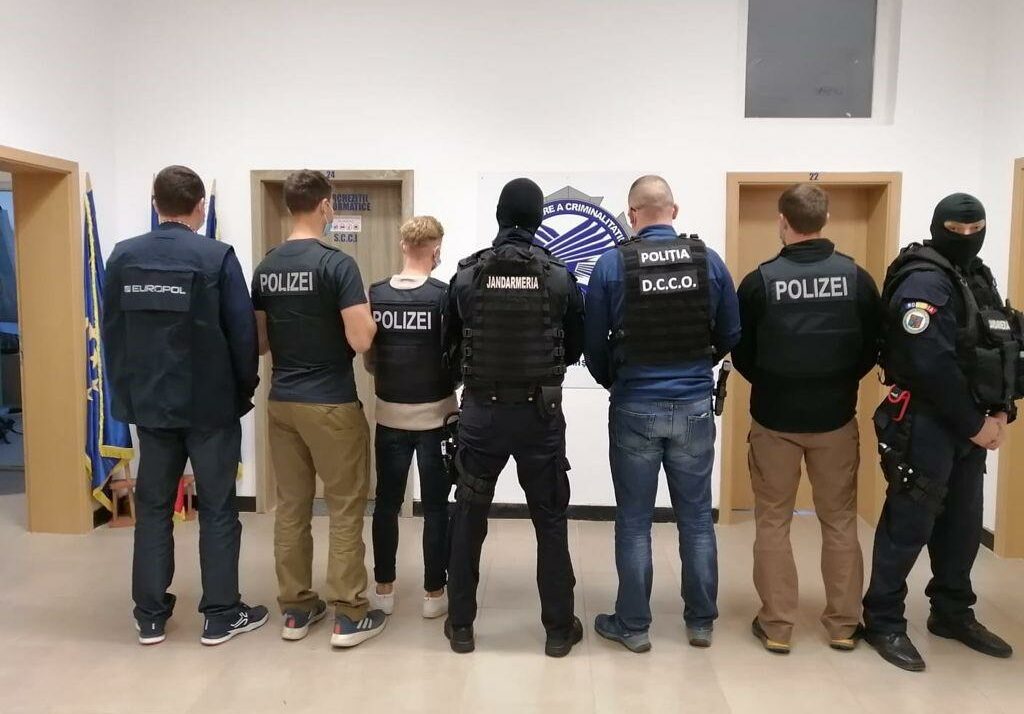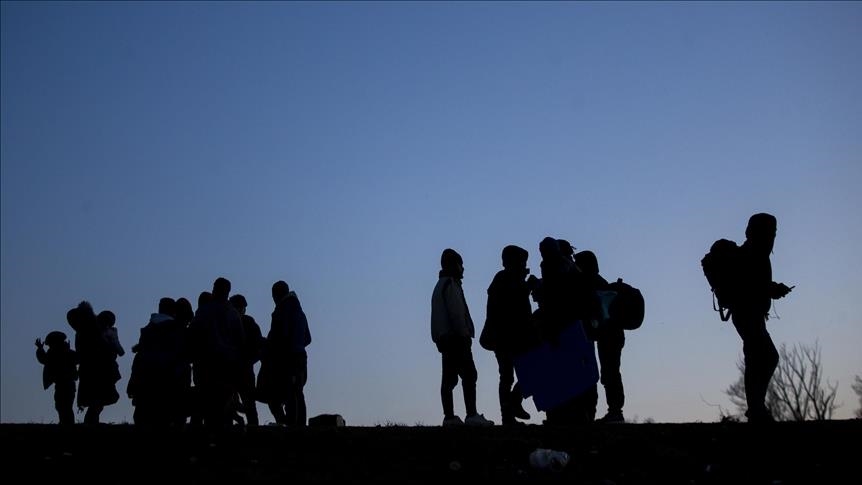The suspects pushed migrants into the back of large lorries while drivers were taking sleep breaks
The German Federal Police (Bundespolizei) and the Romanian Police (Poliția Română), supported by Europol and Eurojust, dismantled an organised crime group involved in the migrant smuggling of predominantly Afghan nationals.
Results from 5 October 2021
- 19 locations searched (14 in Timisoara, 4 in Timiş county and 1 in Bucharest)
- 27 suspects identified, of which
- 21 suspects arrested (16 Afghan, 1 Iranian and 4 Romanian nationals)
- Seizures include cash, 83 mobile phones, other electronic equipment and 10 morphine vials)
Up to € 2 000 to jump off a lorry in Western Europe
The investigative activities suggest that the network had been operating in the Romanian counties Timiş and Arad since May 2020. The criminal network, composed mainly of Afghan nationals, was smuggling Afghan migrants recruited from refugee camps and other places where asylum seekers gather. The suspects are believed to have smuggled about 200 migrants from Romania to countries in Western Europe, mainly France and Germany. The network facilitated the illegal transport and accommodation at transit points. Migrants were paying between € 1 000 and € 2 000 for the dangerous trip in the back of large lorries.
Hidden between goods such as tree trunks and pallets, the migrants endured low temperatures and inhuman conditions during several days of transport. German investigators from Rosenheim and Munich detected about 50 similar cases. According to the investigations, the truck drivers were not aware that they had people in the back of their trucks. While the drivers took their sleep breaks in Romania, the smugglers released the sealed ropes covering the doors of the trailers to make an opening. From there, the migrants were able to enter the loading area unnoticed. Once in Germany, they jumped off the truck when the drivers took breaks or unloaded the cargo.
Cross-border cooperation
Europol facilitated the exchange of information and provided operational coordination and analytical support. On the action day, Europol enabled a virtual command post to facilitate the real-time exchange of information. Europol also deployed an analyst to Romania to cross-check operational information against Europol’s databases to provide leads to investigators in the field.
Eurojust set up a joint investigation team (JIT) between Germany, Romania and Europol to facilitate the judicial cooperation.
National authorities involved:
Germany: Federal Police Inspectorate Rosenheim (Bundespolizeiinspektion Rosenheim), Federal Police District Office for Crime Control Munich , (Bundespolizeiinspektion Kriminalitaetsbekämpfung München), Public Prosecution Office Traunstein (Staatsanwaltschaft Traunstein)
Romania: Specialized Units in Countering Organised Criminality from Timis, Arad and Caras-Severin Counties within Romanian Police (Poliția Română) and the Directorate for the Investigation of Organised Crime and Terrorism (Direcția de Investigare a Infracțiunilor de Criminalitate Organizată și Terorism (DIICOT) in Timișoara
Headquartered in The Hague, the Netherlands, Europol supports the 27 EU Member States in their fight against terrorism, cybercrime, and other serious and organized crime forms. Europol also works with many non-EU partner states and international organisations. From its various threat assessments to its intelligence-gathering and operational activities, Europol has the tools and resources it needs to do its part in making Europe safer.
In 2017 the Council of the EU decided to continue the EU Policy Cycle for the 2018 – 2021 period. It aims to tackle the most significant threats posed by organised and serious international crime to the EU. This is achieved by improving and strengthening cooperation between the relevant services of EU Member States, institutions and agencies, as well as non-EU countries and organisations, including the private sector where relevant. Migrant smuggling is one of the priorities of the Policy Cycle. From 2022, the mechanism becomes permanent under the name EMPACT 2022+.









